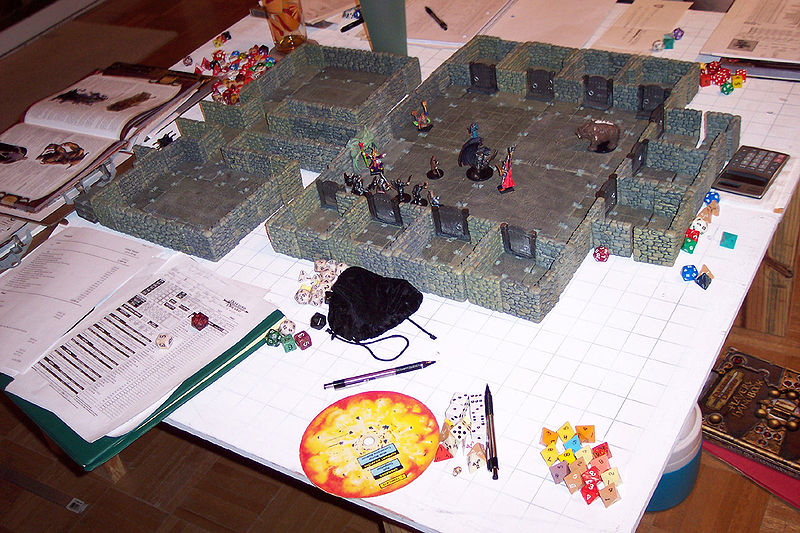
Finding new and interesting ways to practise your speaking skills while you study can be a challenge. Fear not, TTRPGs exist, and there are plenty to choose from.
“What is a TTRPG?”
TTRPG stands for Table Top Role Playing Game. You, a player, create a character and pretend to be them as you go on an adventure, solve mysteries, and maybe fight a monster or two, depending on what kind of game you play. The important part is the story. TTRPGs are supposed to be collaborative (you work together), which allows you to be creative.
“Which one should I play?”
There is no correct answer. The most popular is Dungeons and Dragons. It’s also the easiest one to find a game to play as a beginner and meet new people (more on that later). It is the more expensive option, though, as it uses 7 different dice to play the game. It’s also very fantasy themed, although you can find games that are not so heavy on dragons and elves.
An easier and cheaper game to play is Monster of the Week. It is a monster hunting game, but it’s more like Buffy the Vampire Slayer or Supernatural than Game of Thrones. The game only needs two standard dice, and the rules are much easier to learn. It’s also a lot more focused on “I do this” and the dice roll will tell you how well you do it, where Dungeons and Dragons follows the “I want to do this” idea, with a dice roll telling you if you do or not.
“How many people do you need to play?”
Both games need a Game Master. They don’t play, but they guide the game and the story. They are, basically, the monsters and everyone you meet along the way. After that, you need four to six players. Less than four and the balance is difficult. More than six and you have to wait a long time to take a turn. Being a Game Master is a lot of work. If you’re planning on playing with other language learners it’s important that the person in this position has a strong enough vocabulary to describe the scene.
“Do I have to do voices to play?”
Absolutely not. Voices can be a fun addition to a game, but not everyone is comfortable doing it. Some people don’t even role play. Instead they follow the reported speech pattern of storytelling.
“How much does that cost?”
I ask the shopkeeper how much it costs.
The point is to have fun, not to put on a show, so no pressure.
“How good does my English need to be?”
At least a strong A2 level of English, but ideally B1 and above. Could you play with a lower level of English? Yes. Will you be comfortable playing if you don’t understand the vocabulary in the game or want to express yourself? Probably not.
The good news is that you only really need basic grammar to play. A lot of the game, as a player, is in the Present Tense as you describe what your character says or does.
“Where can I play?”
Local game stores sometimes host events for Dungeons and Dragons. Near ISI there are two places that host beginners, Gamers World and Clockwork Door. The Saint Bar in Inchicore also plays host to a weekly Dungeons and Dragons meet up on Tuesdays and Wednesdays.
You could also form your own group, but try to mix nationalities if it’s with other language learners. This will help you speak English and not switch to your first language.
You can find the basic rules for both games mentioned here.
Or you can find more here.
Enjoy!
